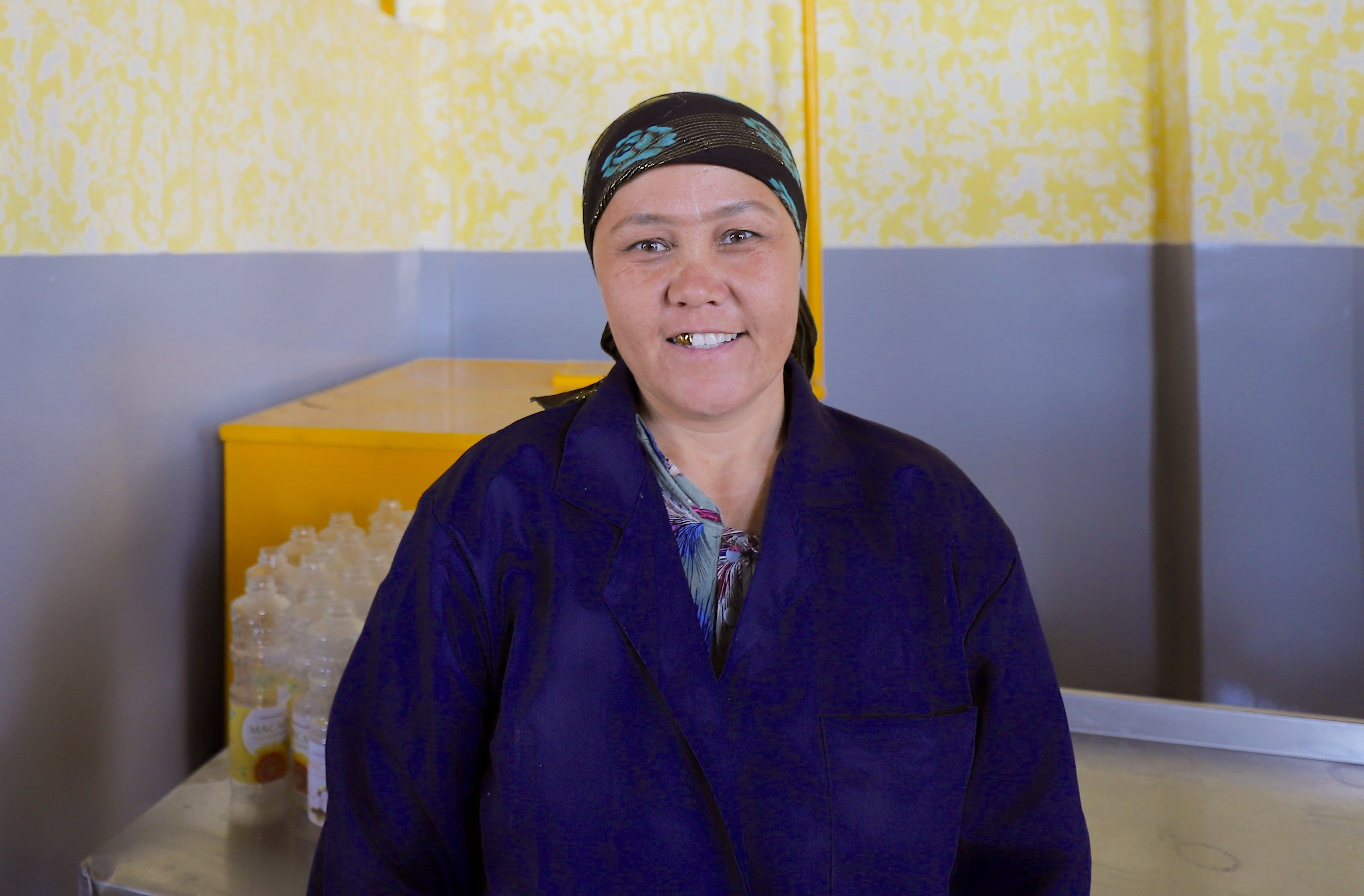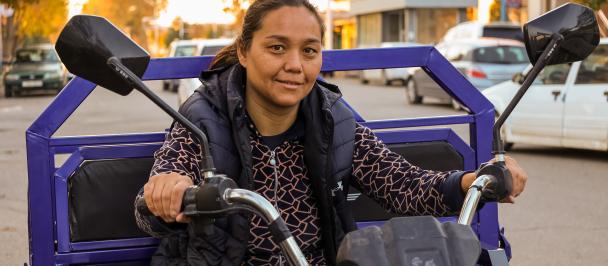Unlocking opportunities and creating hope for women in rural Tajikistan
July 1, 2022

Firuza is a full-time employee of a new oil plant in Dusti, Southern Tajikistan.
Finding a decent, full-time job is much harder for women than for men in remote rural areas in Tajikistan. 69 % of working-age women are not working for pay in Tajikistan, compared to 49% of men, according to the recent World Bank Gender Assessment Report.
Firuza is a 46-year-old woman from the Dusti district of Khatlon region in Tajikistan - the remote rural area bordering Afghanistan. She is a single parent of four children from a low-income family. Like many other women in a traditional society, she was married at 16 and devoted her life to the family and children.
At the age of 36, she got divorced and faced challenges in earning for her family without a job, experience, or education. She often had insufficient resources to cover the cost of food and other essentials. “Women are less likely to be employed, unlike men in our area, even for low-paid and unskilled work, given the gender stereotypes in our society. I was desperate and my life was a struggle without a job”, said Firuza during the interview.
The COVID-19 pandemic had a devastating impact on poor and low-income households, and the situation has gotten worse due to the Russian-Ukrainian conflict, spiking the prices for essential food items in Tajikistan, and increasing the risk of malnutrition and poverty, especially for communities living in remote, less developed areas of the country.
Firuza's employment prospects have significantly changed with the establishment of a new mini plant to produce cotton and sunflower oil in Dusti. She learned about a vacant position as a product packer in her community and immediately applied for it.
The oil plant is a business facility established with the support of the One Village One Product Association (OVOP) in the framework of the UNDP LITACA Project funded by the Government of Japan. The OVOP Association helps the local businesses and farmers, including female entrepreneurs and youth to expand their businesses, develop their capacity to produce high-quality goods and food products, strengthen and intensify local food production, ensure quality control, and increase employment opportunities in the rural communities promoting national and international trade cooperation at the Tajik-Afghan border.

Production of pickled products supported by OVOP under the UNDP LITACA Project
“I am grateful to the leadership of OVOP, the oil plant, and development partners for strengthening and enhancing the local economy through the empowering rural communities and providing us, women, with a job”, said Firuza.
The oil plant provided twenty full-time job opportunities to men and women from vulnerable groups, including Tajik migrant workers who returned home and seek domestic employment. On a seasonal basis, the plant can employ an additional 200 residents within the same community.
"I feel more secure with this job and now I have a stable monthly income. I have friendly and supportive colleagues who share their knowledge and motivate me to unlock my potential at this age. I am a role model for my children. My 29-year-old son, Arslan, works with me on the same plant, and we can cover the family's food expenses and other essentials, and pay for the education of my minor children", she further shared.
Establishing the Cotton Oil Plant in Dusti is an excellent example of how UNDP Tajikistan works with and supports the Government to build economically stable and resilient communities and promote gender equality and women empowerment in rural areas for sustainable development.

 Locations
Locations
